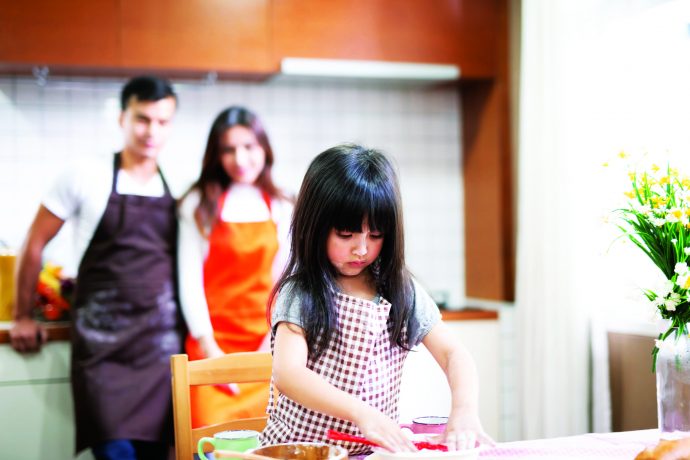Parenting is an ongoing journey and parents need to keep enriching and educating themselves, as their child grows from an innocent child into a mature adult.
Life is in constant flux, and many parenting skills or practices from your childhood or those you may have picked up along the way in dealing with your child could now be considered outdated, or your child may have outgrown that stage. For example, fear – based methods of parenting were popular in the past, but nowadays, most experts agree that these methods are ineffective and that getting children to self-regulate is best.
While the basics are similar across different ages, the approach used should be tailored to each individual child to suit his age and stage of development. Here are three points to keep in mind at all times:
- No two children are alike. Recognise that each child is unique. Be receptive to these differences, especially between siblings and among other children. More importantly, temper your expectations to match his capabilities and interests. Children perform their best when standards are set to challenge but not exceed their abilities.
- Physical health and wellness alone are insufficient. Cater to your child’s emotional and spiritual needs as they help give his life meaning. For emotional needs, provide him with unconditional love, attention, acceptance and quality time spent together. His spiritual needs can be shaped by religion, values, ethics, principles and morals. However, keep in mind that children observe parental behaviour, thus parents need to walk the walk and not just talk the talk.
- Encourage open communication. Learn to listen and let your child speak his mind (respectfully, of course). This helps you keep up-to-date and current with what or how he is doing, thus providing you with a better idea of how to fine-tune your parenting approach. Here’s a tip: we have two ears and one mouth, so listen twice as much as you speak and keep an open mind-set on things that matter to your child.
Knowledge is power
Stay abreast of current parenting practices and any other knowledge related to parenting and child health. However, when updating your knowledge from the Internet and social media, there is always the danger of being influenced or misled by inaccurate, fake or faulty information.
To safely navigate this minefield of misinformation, you need to know where to find reliable information. Get started with these credible online resources:
- Positive Parenting Malaysia programme
- Healthy Children by American Academy of Pediatrics
- Doktor Budak
Loop me in
At the same time, do stay on top of things by monitoring what influences your child’s thoughts and/or behaviours. This includes the friends he spends time with, his use of the Internet and social media, the type of entertainment or reading materials he enjoys, as well as how he spends his leisure time.
You don’t have to resort to spying on his every move, but talk (and listen) to him to get his take on things. There will always be signs if something is not right, so stay alert. It also helps if you know who his friends are as they may be able to provide you with clues in case something is troubling him.
Letting go
Although parenting styles and strategies should be dynamic and adaptable based on your child’s age and stage of development, an integral part that many parents have trouble with is the concept of ‘letting go’. This should be done in stages, and does not mean you are abandoning him to his own devices, but rather trusting him enough to let him handle certain things on his own.
If you continually swoop in and ‘save’ him from possible hurt or harm, you are taking away his opportunity to develop resilience by learning how to handle and deal with pain and disappointments. This is crucial as it ties in with his ability to become independent and learn how to stand on his own two feet without constant input or instructions from parents.
As he grows and matures, you should be able to gradually give less supervision and guidance. Continue to be there for him whenever he needs you, but let him have the freedom to approach problems with his own solutions.
Embrace change
The thought of your child growing up and becoming independent too quickly may seem scary. I want to assure you not to worry about it, as parenting is for life, so do ‘grow’ along with your child. Parenting is never stagnant, nor does it end when your child grows up into an adult.
The most important skill any parent needs is communication. Remember to communicate often with your spouse and your child. This is often the best method to gain feedback on how effective your parenting methods or strategies have been.
Nevertheless, don’t ignore problems either, especially if there are long-standing issues that cannot be managed despite your best efforts. This could be due to a child’s developmental issues that may require professional assistance. For cases like this, don’t hesitate to reach out and talk to a consultant/therapist. Even as parents, we need to acknowledge that we could use some help in providing the best for our child. That’s part and parcel of growing up.






Comments